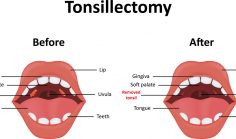The term sleep hygiene was coined by the psychologist Peter J. Hauri in 1977, as a term for the good habits that help a person get the right amount of good-quality sleep. Principles of sleep hygiene revolve around avoiding stress and distractions at bedtime, avoiding things that could disrupt your sleep, and keeping regular, consistent routines that can remind your body when it’s time to sleep.
Sleep Hygiene

What Is Sleep Hygiene
Risk Factors For Sleep Hygiene
It’s up to you to take care of your own sleep hygiene, but poor sleep habits may not always be your fault. Many people develop bad sleep habits because of circumstances in their lives such as college, a change in work schedule, or the birth of a new child. Common influences in your life that could disrupt your sleep habits include:
- Stress at work or at home, including both ordinary stresses such as a tight deadline and major events such as a divorce or the death of a loved one. Stressful events may also include some happy occasions, such as planning a wedding.
- A changing schedule at work or at home.
- Travel to a different time zone or an unfamiliar location.
- Stimulants, such as coffee, caffeinated sodas, tea, or cigarettes.
- Alcohol, which may help you fall asleep but can make your sleep less restful.
Diagnosing Sleep Hygiene
If you need to improve your sleep hygiene, the best indicator may be that you’re tired during the daytime. You don’t need a diagnosis from a doctor to start developing healthy habits, but a visit to a doctor may help you make sure that the problem with your sleep isn’t caused by a medical issue, such as sleep apnea or restless legs syndrome.
If you go to your doctor, the visit may start with questions about your sleep habits and possible causes that may disrupt your sleep, such as stress at work or disorder in the home. A physical exam may be necessary to check for medical problems. Your doctor may also ask you to keep track of your sleep habits and patterns in a sleep diary. In a few cases, an overnight sleep study may be necessary, although sleep studies aren’t usually required when sleep hygiene is the only issue.
Symptoms of Sleep Hygiene
The main symptom of poor sleep hygiene is trouble sleeping at night. You may have trouble getting to sleep, or you might wake up in the middle of the night and have trouble getting back to sleep. Alternately, you may have an irregular sleep pattern, where you go to bed at different times from one night to the next, and you can’t predict when you will wake up in the morning.
Trouble sleeping often leads to being unusually tired during the day. This can lead to changes in mood or other symptoms, such as:
- Sleepiness
- Irritability
- Low energy
- Trouble concentrating
- Daytime naps
Prognosis
Your body needs sleep to function properly. Failing to get enough sleep can lead to serious health problems. Over time, inadequate sleep hygiene may lead to serious health problems, such as depression, heart disease, and diabetes. Missing sleep can also put you at risk for serious accidents. Drowsy driving kills 1,500 people every year in the United States.
One study found that people who sleep less than 6 hours per night or rely on sleeping pills die at an earlier age, on average, than those who get 7 hours of sleep per night.
Living With Sleep Hygiene
Improving your sleep hygiene is largely a matter of changing your own habits. Your doctor can make suggestions, and refer you to a cognitive therapist or other help if you have a lot of trouble getting on track, but your sleep hygiene is mostly up to you. Here are some things you can do to improve your sleep hygiene:
- Stay on a sleep schedule. Go to bed at the same time every night and get up at the same time every morning–even on weekends. This helps you train your body’s internal clock to know when it’s time to sleep and when to wake up.
- Keep a bedtime routine. Even run-of-the-mill routines like brushing your teeth can help tell your body that it’s time to sleep, if you make sure to do the same thing every night. If you still have trouble sleeping, try something that relaxes you, such as yoga, a hot bath, or reading a good book, every night before bedtime. Having a routine helps get your mind and your body ready for sleep.
- Don’t overeat at bedtime. Avoid heavy late-night meals. A light snack is OK, if the alternative is going to bed hungry, but eating just before bed can lead to heartburn that wakes you from sleep.
- Also stay away from alcohol, caffeine, or cigarettes in the evening. Caffeine or nicotine can make it hard to get to sleep. Alcohol may put you to sleep more easily, but too much of it can lower the quality of your sleep so that you don’t wake up feeling rested.
- Exercise every day. An active body is better at sleeping. Aim for 20 minutes to half an hour of vigorous exercise in the afternoon, at least 5 to 6 hours before bedtime.
- Avoid naps, especially in the afternoon or evening.
- Make sure your bed is comfortable, and your room is dark and quiet, to make it easier to fall asleep.
- Don’t take your work to bed. Distractions such as televisions, computers, or work should be kept out of the bedroom.
- Don’t force it. If you can’t sleep, go to another room and do something else for a while. Come back later when you’re ready to sleep, and try again.
- Get natural daylight. Get out in the sunlight in the daytime, especially in the early morning. Avoid too much bright light in the evening. The natural rhythms of day and night help your body remember when it’s time to sleep.
Screening
Lack of sleep can be a serious problem, but not all doctors screen for sleep hygiene issues. If you are having trouble getting enough sleep at night, or if it’s hard to you to stay awake in the daytime, talk to your doctor before it becomes a more serious problem. Your doctor has several questionnaires and screening tools available, including:
- The Sleep Hygiene Self-test, a 30-question survey you can use to assess your own sleep habits, originally developed for combat veterans coping with post-traumatic stress disorder
- The Sleep Hygiene Awareness and Practice Scale, which tests your knowledge of sleep hygiene and also asks about your personal habits that may impair or improve your sleep
- The Sleep Hygiene Index, a set of 15 questions about habits that may disrupt your sleep
- The Adolescent Sleep Hygiene Scale, designed to measure sleep hygiene in teens
Preventing Sleep Problems
The good sleep hygiene habits you can use to help get your sleep back on track can also help you keep your sleep habits on track from the start, if you begin practicing them before you have a problem with your sleep. These include:
- Go to bed at the same time every evening, even on weekends, and wake up at the same time every morning.
- Make your bedroom a calm, relaxing space
- Practice a relaxing daily routine before going to bed.
- Exercise every day for 20 minutes to half an hour, 5 hours or more before your bedtime.
- Avoid things that can disrupt your sleep, such as cigarettes, alcohol, coffee, or large meals just before bedtime.
- Avoid daytime naps, especially in the afternoon or the evening.
- If a medicine makes it hard for you to sleep, ask your doctor if there’s something else you can take instead.
- Get natural sunlight in the daytime.
- Use stress management to get any anxiety under control.
Medication And Treatment
There are medical treatments to help you sleep, but you should not rely on sleeping pills as a first resort. Short-term use of sleep aids can help some people get their sleep on track, but long-term reliance on sleeping pills may lead to addiction or dependence, and get in the way of developing the good habits you need for long-term sleep hygiene.
If your sleep habits are off kilter and sleep hygiene alone doesn’t seem like enough to help you get yourself back on track, there are some treatments your doctor can prescribe or refer you for. These treatments include:
- Cognitive behavioral therapy, a type of psychotherapy designed to help you replace bad habits with healthier behavior
- Light therapy using natural sunlight or a light box to synchronize your body’s rhythms with the natural cycle of day and night
- Specific techniques that run counter to most people’s expectations, such as sleep restriction, which involves getting sleep for a while to make you more tired, or paradoxical intention, in which you go to bed and try to stay awake until you can’t.
If sleep hygiene and behavioral therapies aren’t enough, then short-term medication may help, but most doctors recommend limiting sleep aids to just a few weeks, until you get your sleep schedule back on track.
Complementary and Alternative Treatment
In addition to behavioral therapies, lifestyle changes, and medical sleep aids, there are many complementary and alternative treatments that may also help you sleep.
Relaxation techniques such as breathing exercises or progressive relaxation are a mainstay of sleep medicine. These include:
- Yoga
- Meditation
- Massage
- Progressive relaxation
- Biofeedback
- Breathing exercises
Some studies have found acupuncture to be very helpful with sleep disorders, possibly in as many as 9 patients out of 10, although more research is still needed.
Another popular approach is melatonin, a sleep hormone your body produces naturally. Melatonin supplements appear to be effective for some specific sleep disruptions, such as jet lag.
Other complementary and alternative approaches that may help you sleep include:
- Herbal treatments such as valerian, kava kava, or chamomile
- Tart cherry juice
- Vitamins A, B, C, and E
- Other supplements, such as L-tryptophan, coenzyme Q10, or omega 3 fatty acids
- Homeopathic medicine
- Chiropractic adjustments
Always talk to your doctor about any treatments you use, including alternative and complementary treatments. Many herbal medicines and supplements may cause side effects or interact with other medicines you take.
When To Contact A Doctor
Lack of sleep can be devastating to your overall health and the quality of your life. Practicing good sleep hygiene is something you can start on your own, but if it’s hard to change your habits, or if good habits aren’t enough, then there’s no shame in asking for help. If poor sleep makes it hard for you to function during the day and trying to improve your sleep hygiene doesn’t help, or if you have trouble sleeping 3 or more nights a week for 3 months or longer, talk to your doctor.
Questions For A Doctor
When you go to see your doctor, it’s good to have a list of the questions you’d like to have answered. Take a moment to write down some of the things you want to know. Your questions for your doctor might include some of these:
- What do you think is making it hard for me to sleep?
- What are the most important changes I can make in my day-to-day life?
- Is there anything else I should know about good sleep hygiene?












